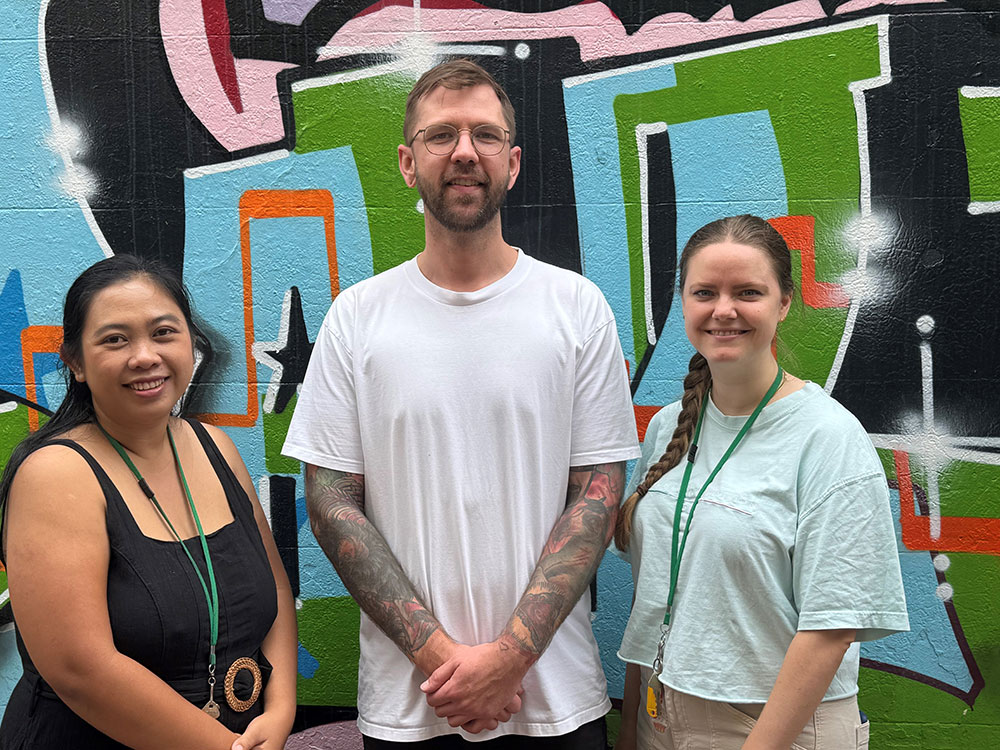Double-lung transplant survivor Jordan Trieger has defied all odds – beating a deadly bacterial infection with the help of The Prince Charles Hospital (TPCH) and researchers from The University of Queensland.
Thirty-three year old Jordan, who has cystic fibrosis, suffered a life-threatening bacterial infection after undergoing a lung transplant at TPCH, Queensland’s centre for lung transplantation.
As his worsening infection failed to respond to treatment, Jordan’s transplant team turned to researchers at UQ’s Diamantina Institute for answers – a decision that would ultimately save his life.
Queensland Lung Transplant Service’s Head of Research Professor Dan Chambers said the UQ team discovered Jordan had ‘bad’ antibodies, making his infection impossible to control with conventional treatment.
“In Jordan’s case, the bacteria was resistant to all forms of conventional therapy we were trying, and he was rapidly deteriorating, so I knew we needed a different treatment option fast,” Professor Chambers said.
“Although moving into unchartered territory, we knew of the ground-breaking work being done at UQ Diamantina Institute and so turned to them to see if Jordan had the bad antibodies they were working on.
“Incredibly he did, so we went ahead and removed the harmful antibodies and replaced them with ones from healthy donors in a procedure called plasmapheresis – a remarkable success which allowed Jordan to make a full recovery.
“Excitingly, this successful treatment of ‘bad’ antibodies now opens doors for potential treatment of other superbug infections which kill thousands of people each year.”
UQ Diamantina Institute researcher Dr Timothy Wells said the discovery was fortuitous, as they had been researching the exact harmful antibodies present in Jordan.
“Some patients like Jordan produce a specific type of antibody that actually protects the bacteria, rather than targeting them for killing by the immune system,” Dr Wells said.
“Fortunately, our research allowed us to identify this, with this innovative treatment now providing scope for other patients including those who may have been too sick to undergo a lung transplant before.”
The research has confirmed the ‘bad’ antibodies found in Jordan’s case can be present in up to 40 per cent of patients with the worst type of ‘superbug’ infections.
“This discovery is likely to have broader implications for managing serious and life-threatening infections across the world,” Professor Chambers said.
“Jordan’s remarkable recovery gives hope to those living with cystic fibrosis and other chronic lung diseases.”
TPCH Executive Director Michele Gardner said working with researchers is vital for hospital clinicians to improve patient care outcomes.
“Research provides our skilled clinicians with important answers and solutions that can ultimately save the lives of the patients they are caring for,” Ms Gardner said.
(Pictured left to right – Elizabeth Bawden, Jordan Trieger and Dr Timothy Wells)








